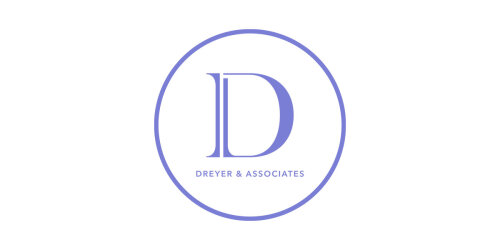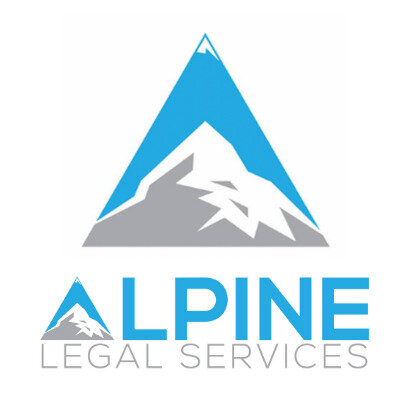Best Commercial Real Estate Lawyers in Langley
Share your needs with us, get contacted by law firms.
Free. Takes 2 min.
Free Guide to Hiring a Real Estate Lawyer
List of the best lawyers in Langley, Canada
About Commercial Real Estate Law in Langley, Canada:
Commercial Real Estate in Langley, Canada refers to properties that are used for business or commercial purposes. This can include office buildings, retail spaces, industrial properties, and more. The legal aspects of Commercial Real Estate in Langley can be complex and require specialized knowledge to navigate effectively.
Why You May Need a Lawyer:
You may need a lawyer for Commercial Real Estate in Langley, Canada for various reasons, including negotiating leases, drafting contracts, resolving disputes, conducting due diligence on properties, and ensuring compliance with local regulations. A lawyer can provide valuable advice and guidance to protect your interests in any transaction or legal matter related to Commercial Real Estate.
Local Laws Overview:
In Langley, Canada, Commercial Real Estate is governed by a variety of laws and regulations at the municipal, provincial, and federal levels. Key aspects of local laws that are particularly relevant to Commercial Real Estate include zoning regulations, land use regulations, environmental regulations, taxation laws, and contract laws. It is important to understand these laws to ensure compliance and mitigate any legal risks.
Frequently Asked Questions:
1. What is the difference between Commercial Real Estate and Residential Real Estate?
Commercial Real Estate is used for business or commercial purposes, such as office buildings, retail spaces, and industrial properties. Residential Real Estate, on the other hand, is used for personal living purposes, such as houses, apartments, and condominiums.
2. Do I need a lawyer for Commercial Real Estate transactions in Langley?
While it is not required by law to have a lawyer represent you in Commercial Real Estate transactions in Langley, it is highly recommended to seek legal advice to protect your interests and ensure that all legal requirements are met.
3. What is involved in the due diligence process for Commercial Real Estate transactions?
The due diligence process involves investigating the legal, financial, and physical aspects of a property before completing a transaction. This may include reviewing contracts, conducting property inspections, verifying zoning regulations, and assessing environmental risks.
4. How can a lawyer help me negotiate a lease for a commercial property?
A lawyer can help negotiate the terms of a lease agreement, including rent, duration, maintenance responsibilities, and renewal options. They can also ensure that the lease complies with local laws and protects your interests as a landlord or tenant.
5. What are common disputes that may arise in Commercial Real Estate transactions?
Common disputes in Commercial Real Estate transactions may involve breach of contract, non-payment of rent, property damage, zoning violations, and boundary disputes. A lawyer can help resolve these disputes through negotiation, mediation, or litigation.
6. How are property taxes calculated for Commercial Real Estate in Langley?
Property taxes for Commercial Real Estate in Langley are calculated based on the assessed value of the property, as determined by the BC Assessment Authority. The tax rate is set by the municipality and may vary depending on the property's classification.
7. Can I subdivide or rezone a commercial property in Langley?
Subdividing or rezoning a commercial property in Langley is subject to municipal regulations and approval processes. A lawyer can help navigate these processes and ensure compliance with zoning regulations and land use bylaws.
8. What are my rights as a landlord or tenant in a commercial lease agreement?
Landlord and tenant rights in a commercial lease agreement are governed by the terms of the lease, as well as local landlord-tenant laws. A lawyer can advise you on your rights and responsibilities under the lease and help resolve any disputes that may arise.
9. How can I protect my interests when purchasing a commercial property in Langley?
To protect your interests when purchasing a commercial property in Langley, it is important to conduct thorough due diligence, review all contracts and agreements carefully, and seek legal advice from a lawyer experienced in Commercial Real Estate transactions. A lawyer can help identify potential risks and negotiate favorable terms on your behalf.
10. What should I do if I am involved in a legal dispute related to Commercial Real Estate in Langley?
If you are involved in a legal dispute related to Commercial Real Estate in Langley, it is important to seek legal advice from a lawyer specializing in Commercial Real Estate law. They can assess your situation, explain your legal options, and represent you in negotiations or court proceedings to resolve the dispute effectively.
Additional Resources:
For more information and resources related to Commercial Real Estate in Langley, Canada, you may consider contacting the Real Estate Council of British Columbia, the British Columbia Ministry of Municipal Affairs and Housing, or local law firms specializing in Commercial Real Estate law.
Next Steps:
If you require legal assistance in Commercial Real Estate in Langley, Canada, it is recommended to schedule a consultation with a qualified lawyer who has experience in this field. They can provide personalized advice and guidance to help you navigate the legal complexities of Commercial Real Estate transactions and protect your interests effectively.
Lawzana helps you find the best lawyers and law firms in Langley through a curated and pre-screened list of qualified legal professionals. Our platform offers rankings and detailed profiles of attorneys and law firms, allowing you to compare based on practice areas, including Commercial Real Estate, experience, and client feedback.
Each profile includes a description of the firm's areas of practice, client reviews, team members and partners, year of establishment, spoken languages, office locations, contact information, social media presence, and any published articles or resources. Most firms on our platform speak English and are experienced in both local and international legal matters.
Get a quote from top-rated law firms in Langley, Canada — quickly, securely, and without unnecessary hassle.
Disclaimer:
The information provided on this page is for general informational purposes only and does not constitute legal advice. While we strive to ensure the accuracy and relevance of the content, legal information may change over time, and interpretations of the law can vary. You should always consult with a qualified legal professional for advice specific to your situation.
We disclaim all liability for actions taken or not taken based on the content of this page. If you believe any information is incorrect or outdated, please contact us, and we will review and update it where appropriate.










